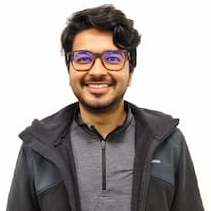Recent Trends in Solid-State Additive Manufacturing of Alloys
A special issue of Materials (ISSN 1996-1944). This special issue belongs to the section "Metals and Alloys".
Deadline for manuscript submissions: 31 August 2024 | Viewed by 107
Special Issue Editors
Interests: additive manufacturing; solid-state processing; probabilistic modeling; mechanical characterization; processing–structure–property correlation; novel alloy design
Interests: additive manufacturing; phase transformations; microstructural characterization; alloy development; mechanical behavior
Interests: additive manufacturing; computatinal process modeling; fluid dynamics; laser materials processing; machine learning
Interests: additive manufacturing; metrology; micro-manufacturing; high-performance machining
Special Issues, Collections and Topics in MDPI journals
Special Issue Information
Dear Colleagues,
Additive manufacturing (AM) has transformed the manufacturing sector by enabling the fabrication of intricate geometries with a minimal buy-to-fly ratio, making it an invaluable technology across diverse industrial domains. Its capacity for faster production rates and reduced costs has further solidified its impact. However, despite these advantages, the widespread adoption of AM has encountered specific barriers. Challenges, including reproducibility issues, unfavorable microstructures and defects, and the complexities associated with quality control, have somewhat constrained its universal acceptance. Addressing these challenges is crucial for unlocking the full potential of AM and ensuring its seamless integration into mainstream manufacturing processes. Research in AM has been advancing rapidly, driven by the introduction of unique and innovative manufacturing processes. These include fusion-based and solid-state approaches, each designed to leverage process-specific advantages. Fusion-based AM benefits from rapid solidification rates, whereas solid-state AM processes enable a refined equiaxed microstructure akin to wrought materials, contributing to improved mechanical properties. Additionally, ongoing efforts in novel alloy development are instrumental in tailoring materials to better suit the unique requirements of different AM techniques. This dynamic landscape of advancements underscores the continual evolution of AM technologies and their potential to reshape modern manufacturing.
This Special Issue explores recent alloy design and development trends tailored explicitly for various solid-state AM techniques. It also aims to showcase advancements in state-of-the-art AM processes, as well as efforts towards the development of novel solid-state AM processes. Encompassing fusion-based and solid-state AM approaches, we welcome contributions that delve into the current challenges associated with AM for diverse alloy systems, preferentially for solid-state AM. We are particularly interested in strategies that effectively mitigate these challenges, supported by comprehensive microstructural and mechanical characterization. Additionally, we encourage submissions that utilize physics-based process modeling (i.e., computational solid mechanics, computational fluid mechanics, thermo-metallurgical modeling, computational welding mechanics) to address process-induced variability, coupled with thorough in situ or post-experimental validation. Approaches employing physics-informed machine learning frameworks to mitigate challenges associated with AM processing are also encouraged. Beyond this, we are interested in articles discussing strategies for manufacturing functionally graded materials (FGMs) to achieve desirable property tradeoffs.
We invite researchers and experts in the field to contribute to this Special Issue with their original contributions, review papers, and short communications that significantly advance the ever-evolving landscape of AM.
Dr. Ravi Sankar Haridas
Dr. Mohan Sai Kiran Kumar Yadav Nartu
Dr. Shashank Sharma
Dr. Hector R. Siller
Guest Editors
Manuscript Submission Information
Manuscripts should be submitted online at www.mdpi.com by registering and logging in to this website. Once you are registered, click here to go to the submission form. Manuscripts can be submitted until the deadline. All submissions that pass pre-check are peer-reviewed. Accepted papers will be published continuously in the journal (as soon as accepted) and will be listed together on the special issue website. Research articles, review articles as well as short communications are invited. For planned papers, a title and short abstract (about 100 words) can be sent to the Editorial Office for announcement on this website.
Submitted manuscripts should not have been published previously, nor be under consideration for publication elsewhere (except conference proceedings papers). All manuscripts are thoroughly refereed through a single-blind peer-review process. A guide for authors and other relevant information for submission of manuscripts is available on the Instructions for Authors page. Materials is an international peer-reviewed open access semimonthly journal published by MDPI.
Please visit the Instructions for Authors page before submitting a manuscript. The Article Processing Charge (APC) for publication in this open access journal is 2600 CHF (Swiss Francs). Submitted papers should be well formatted and use good English. Authors may use MDPI's English editing service prior to publication or during author revisions.
Keywords
- solid-state additive manufacturing
- additive friction stir deposition
- product development
- process-specific alloy design
- process development
- process-structure-property correlation
- physics-based process modeling
- sustainable manufacturing
- machine learning assisted process optimization









